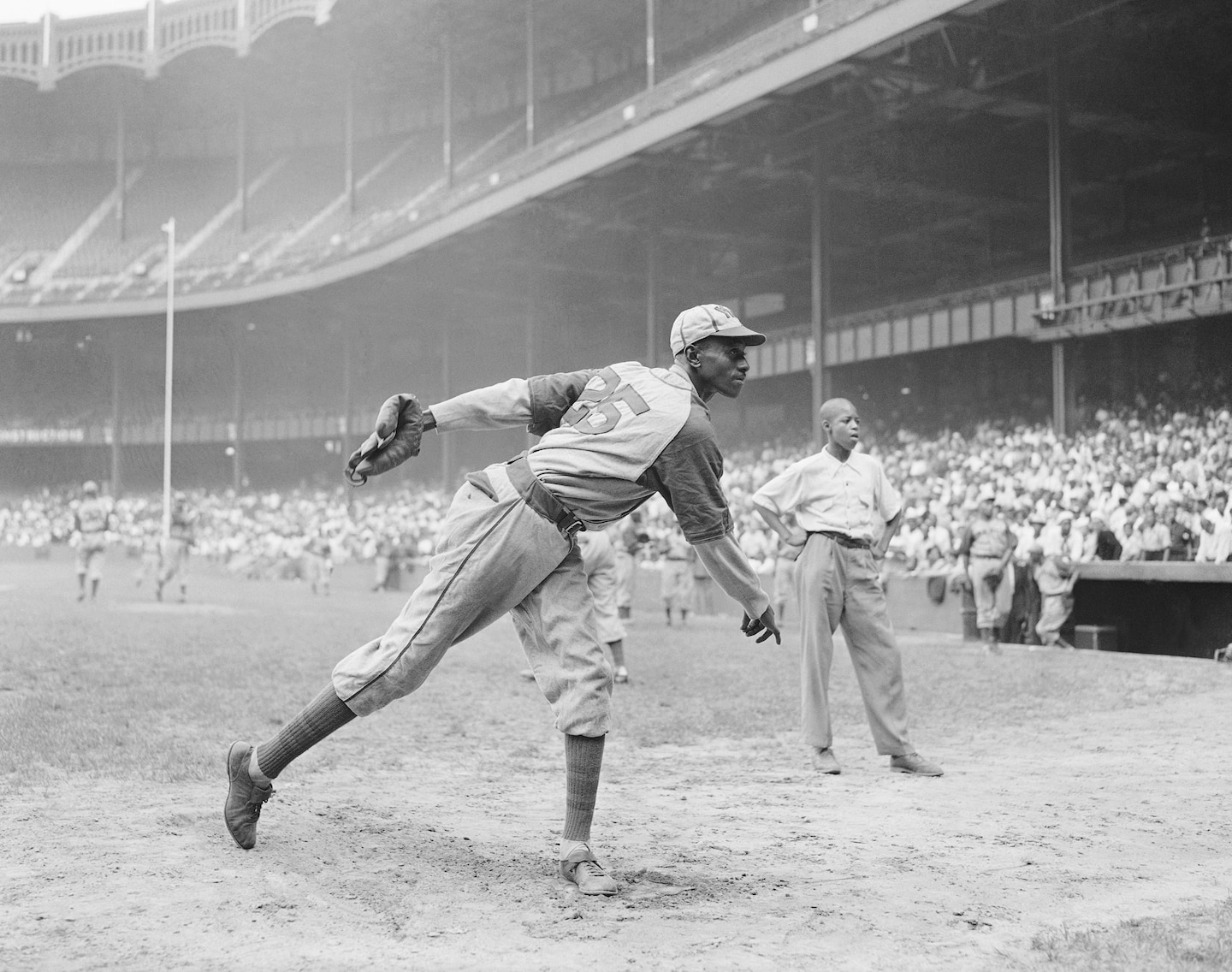A salute to the Negro Leagues

A bloop single away from the museum in the historic heart of Black Kansas City is the red-brick Paseo YMCA building, where in 1920, during the second rise of the Ku Klux Klan, the Negro National League was founded. This year, on Feb. 13, Major League Baseball Commissioner Rob Manfred and others joined Kendrick to commemorate the 100th anniversary of that event, complete with a $1 million joint donation from MLB and the Major League Players Association.
It was the kickoff of a year-long celebration of all the players, managers, executives and fans who, between 1920 and 1960, made America’s pastime truly American. Then — the pandemic.
“Everything came to a screeching halt,” Kendrick told me the other day. “We had to get into a mode to salvage whatever we can.” This was a sad story, but I could tell that under his mask, he couldn’t help smiling. This was not the museum’s first bout with adversity. Founded in 1990 by a local archivist, Horace Peterson, and the charismatic Negro League first baseman Buck O’Neil, the first collection was housed in a single room with the rent paid from month to month by former players. Like the teams it commemorates, the museum has had to be scrappy to survive.
“If you’re going to be the steward of this story, you can’t wallow in a sense of injustice,” said Kendrick, “but initially, I was wallowing.” (Big laugh.) A season’s worth of commemorative events, scheduled for sites across the country, was pushed back to 2021, and — as African Americans have been doing for centuries — he got busy making a way where there was no way.
One of the lost events was to have happened on June 27. All 30 MLB teams, their fans, and the folks watching TV or listening by radio were scheduled to pause midgame and tip their caps in tribute to the Negro Leagues. Kendrick had the idea of taking the tribute online. He enlisted the help of sportswriter Joe Posnanski of the Athletic, Buck O’Neil’s biographer and a close rival to Kendrick in the enthusiasm department. Posnanski, in turn, drafted Washington crisis manager Dan McGinn. In short order, the trio created a Tip Your Cap campaign and launched the site with tips of the cap from all four living former presidents of the United States.
Everyone’s invited to snap a photo and post it to the site. If you do, you’ll join the likes of basketball legends Michael Jordan and Magic Johnson, television hosts Stephen Colbert and Conan O’Brien, musicians Tony Bennett and Larry Gatlin, equality icons Colin Powell and Billie Jean King, and a long list of baseball stars past and present — including Henry Aaron, whose immortal career got its start in the Negro Leagues.
The viral success of Tip Your Cap has “reenergized our campaign” in a way that Negro Leagues veterans would appreciate. “It comes from the grass roots, and we’ve had to do it without a lot of money. Yet the result is over the top — literally. We got a tip of the cap from astronaut Chris Cassidy aboard the International Space Station!” Kendrick exulted.
As happens every time I visit the museum, I left thinking about the self-destructive madness of segregation, the appalling misuse of that most precious resource, human talent. For no reason but hateful ignorance, Americans missed the chance to see Honus Wagner trying to hit pitches from Rube Foster, or Babe Ruth vying with Josh Gibson for a home run title, or Cool Papa Bell stealing a base on Bill Dickey, or Oscar Charleston vs. Joe DiMaggio for an MVP award. Jim Crow did not cancel the greatness of the Negro League stars. It only diminished the quality of the major leagues.
The House of Representatives can tip a collective cap by quickly passing the bipartisan Senate bill to create a commemorative coin to honor the Negro Leagues. The rest of us, whether we do it online or simply in our hearts, should tip our caps in honor of the generations of gifted Americans who created beauty in every walk of life for a country that answered with ugliness. Black lives matter, not just when they’re threatened but when they are given space and encouragement and attention and respect. That’s the story Bob Kendrick tells with such passion and joy.
Read more:






